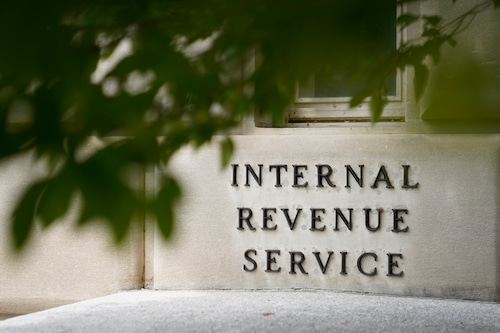By The Associated Press’s Fatima Hussein
WASHINGTONIRS Leadership said Thursday that since the country’s tax collector acquired a huge influx of funds through Democrats’ centerpiece tax, climate, and health package in 2022, the agency has collected $4.7 billion in back taxes and earnings from other offenses.
Republicans, who will control both chambers of the upcoming Congress and have long demanded that the tens of billions of dollars in funding that Democrats gave the agency be revoked, are making the news against the backdrop of a predicted reckoning.
Meanwhile, IRS leadership is trying to defend keeping the agency’s current funding.
“Improvements made to the agency during my term will help the incoming administration and new Republican majority Congress achieve their goals of administering an extension of the 2017 Tax Cuts and Jobs Act,” IRS Commissioner Danny Werfel said on a call with media to preview the announcement.
Republicans intend to extend around $4 trillion in expiring GOP tax cuts, which was a major domestic accomplishment of Trump’s first term and might determine how he returns to the White House.
Werfel stated, “With the advancements we’ve made since I’ve been here, I’m quite confident the IRS will be well positioned to deliver on whatever new tax law that Congress passes.” “We know there are serious discussions about a major tax bill coming out of the next Congress,” he continued.
FILE – On May 4, 2021, in Washington, a sign is erected outside the Internal Revenue Service office. Aug. 19, 2022, Friday. (Patrick Semansky/AP Photo, File)AP
$2.9 billion for IRS Criminal Investigation work on crimes like drug trafficking and terrorist financing, $1.3 billion from high-income taxpayers who failed to pay past-due tax debts, and $475 million in proceeds from criminal and civil cases resulting from whistleblower information are among the tax collections announced Thursday.
The IRS also said on Thursday that it had received $292 million, up $120 million since September, from over 28,000 high-income non-filers who have not filed taxes since 2017.
The agency’s financing future is uncertain despite its successes.
Before the 2023 debt ceiling and budget-cuts agreement between Republicans and the White House resulted in $1.4 billion being rescinded from the IRS and a separate agreement to take $20 billion from the IRS over the next two years and redirect those funds to other nondefense programs, the IRS had received an initial infusion of $80 billion under the Inflation Reduction Act.
U.S. Treasury officials urged Congress in November to release $20 billion in IRS enforcement funds that are essentially blocked due to statutory phrasing.
The $20 billion in question is not the same as the $20 billion that was taken away from the agency the previous year. However, the one-time cut was unintentionally reproduced by the legislative system that keeps the government afloat.
If delay essentially revokes the money, Treasury officials warn of severe repercussions.
Last week, Trump declared his intention to appoint Billy Long, a former congressman from Missouri who served six terms in the House of Representatives after working as an auctioneer, as the next IRS commissioner. Since Long entered the fraudulent Employee Retention Tax Credit industry, Democrats including Sen. Ron Wyden (D-Ore.) have referred to Long’s appointment as an odd decision.
Trump stated on his social media platform that having Billy in charge will be a hit with taxpayers and the amazing IRS staff.
Werfel has not stated if he intends to leave his position prior to Trump’s inauguration, and his tenure is scheduled to expire in 2027. According to the law, Trump is allowed to fire Werfel.
General news
Note: Every piece of content is rigorously reviewed by our team of experienced writers and editors to ensure its accuracy. Our writers use credible sources and adhere to strict fact-checking protocols to verify all claims and data before publication. If an error is identified, we promptly correct it and strive for transparency in all updates, feel free to reach out to us via email. We appreciate your trust and support!

